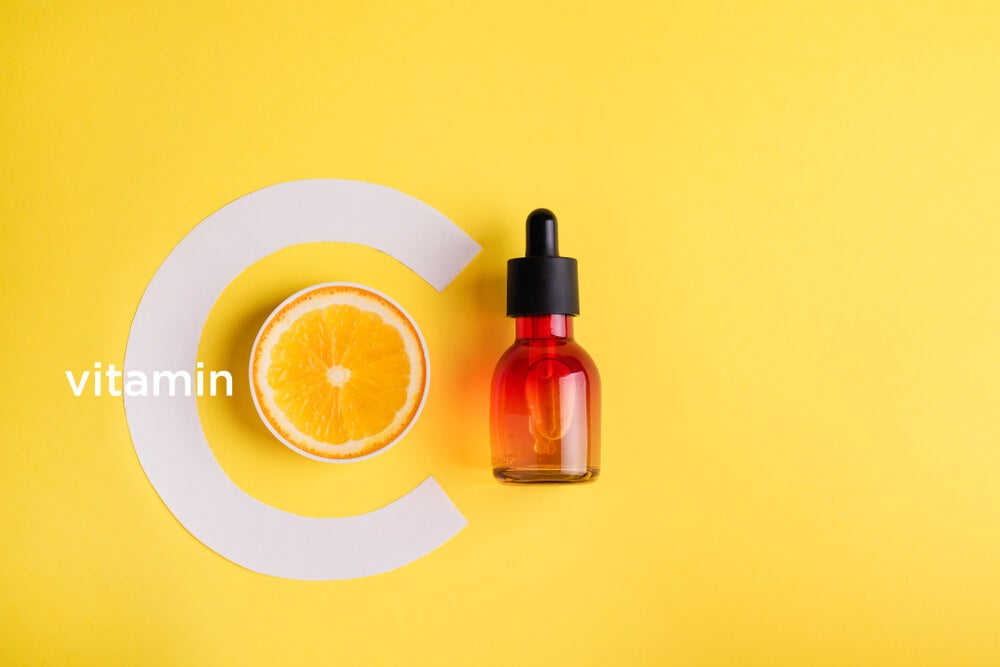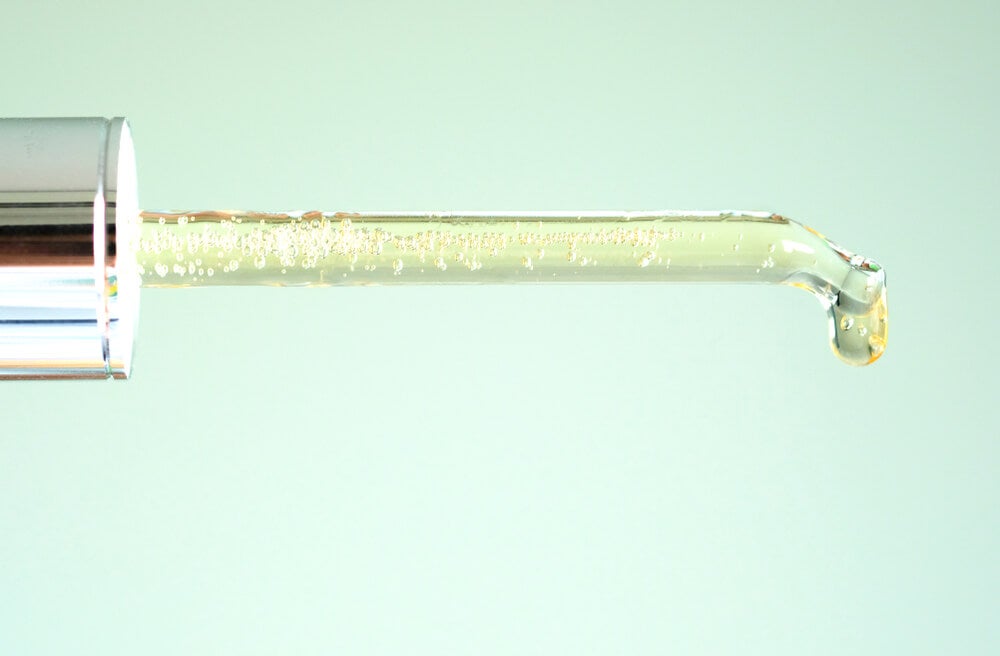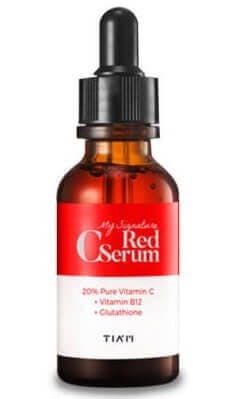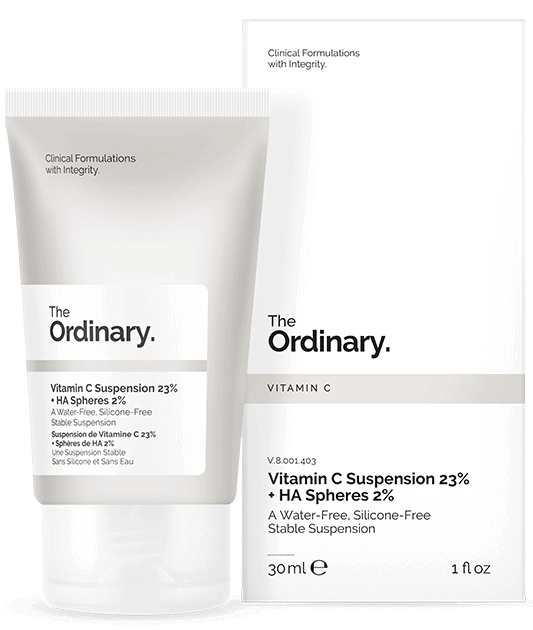Many of us grew up hearing that Vitamin C was good for us. And it’s true–this vitamin boosts the immune system, helps the body form collagen, heals wounds faster, and keeps cartilage, bones, and teeth strong.
Vitamin C is equally powerful in the world of skincare. But even though we know it’s in many serums on the market, most of us don’t know much about it beyond its anti-aging benefits. And you should–because learning how to properly choose a Vitamin C serum is not as easy as it looks.
BEST VITAMIN C SERUMS
| TIMELESS SKINCARE | BUY NOW |
| TIA’M SIGNATURE RED | BUY NOW |
| THE ORDINARY | BUY NOW |
| PAULA’S CHOICE C5 | BUY NOW |
| GOOD (SKIN) DAYS C’S THE DAY | BUY NOW |
What is Vitamin C?

Vitamin C, also known as L-Ascorbic Acid (L-AA), is a potent antioxidant that acts as a warrior against the formation of free radicals (or unstable cells) in the body. Free radicals have been linked to a host of diseases such as cancer, Alzheimer’s, Parkinson’s, diabetes, and rheumatoid arthritis. While some free radicals serve necessary purposes in the body, like immune system defense and energy support, they unfortunately also cause oxidative stress over time (which worsens as free radicals accumulate). They’re also associated with the symptoms of skin aging, which studies have shown can be reversed through regular use of Vitamin C.
When used in a skincare routine, Vitamin C combats UV damage and exposure to air pollution, reduces skin’s melanin production (bye-bye, hyperpigmentation), and accelerates the production of collagen and elastin in the skin due to its acidity–which is what’s responsible for giving us that plump, youthful glow. Knowing all this may make you want to scoop up every product you find that advertises Vitamin C within, but hold your horses, because the method you use to get said Vitamin C matters in a big way.
How do I choose the best Vitamin C serum?
Choosing the best Vitamin C serum for your needs begins with understanding a few key facts about how formulations containing the product work. It’s a deep dive into the science end of the pool, so we’ll link that here in case you want to get into it. If not, read on for the TL;DR version.
There are two crucial parts of choosing a serum that actually works. The first thing you need to look for is a pH of 3.5 or lower, as a higher pH will interfere with absorption. Many products do not have pH stated clearly on the bottle, but the ones we recommend below all fall into the correct pH range.
You’ll also need to decide what strength of Vitamin C you want to use. Pure L-AA will give you the most dramatic results, but not everyone will tolerate it well due to its strength. Vitamin C derivatives are gentler, so while still effective, the results will not be as dramatic.
“When it comes to choosing the right concentration, we recommend starting low and working your way up to higher concentrations,” Deciem Chief Scientific Officer Prudvi Kaka told the Daily Dot in an email. “This would not only ensure the build-up of Vitamin C reservoir within the skin but will also help to gradually increase your skin’s tolerance to the potency of Vitamin C.”
If all that makes your head spin, don’t worry–we’ll show you a variety of options below that have been carefully vetted so you can choose one that’s right for you. And contrary to popular belief, a Vitamin C serum does not have to be expensive to be effective.
How do I use a Vitamin C serum?

Vitamin C serums can be used as part of an AM or PM skincare routine, but the topic is highly debated in the skincare world. The reason for caution against daytime use is simple: when your skin is exposed to UV radiation, it saps the Vitamin C in the process of photo-protection. That’s great in terms of keeping your skin safe, but could be considered an inefficient use of your products. On the other side of the argument, using a Vitamin C serum during the day protects the skin from the damage caused by ultra-violet rays. Using it in both your AM and PM routine is the most efficient way to build up the reservoir needed for adequate photoprotection.
One more tip: while Vitamin C’s antioxidant powers are pretty remarkable, they’re also a double-edged sword. The reason why is because they oxidize, so their shelf life is limited. Most Vitamin C serums are refrigerated to slow down this process. Using a Vitamin C serum that has oxidized may actually age the skin and accelerate sun damage. The easiest way to avoid this is to keep an eye on the color of your serum. If it begins to appear orange, the formula has oxidized and should be disposed of immediately.
The best Vitamin C serums
1) Timeless Skin Care 20% Vitamin C Plus E Ferulic Acid Serum
pH: 2-3
Timeless uses a 20% concentration of L-ascorbic acid in this power-packed serum, so it definitely packs a punch. It also contains vitamin E and Ferulic Acid, which help preserve the lifespan of the product (since it does contain water as well, this is a smart way to offset oxidation). Both fragrance-free and cruelty-free, it’s a good option for an affordable price. While you don’t have to keep it in the fridge, it will last longer than its typical shelf life of three months if you do. Just keep an eye on the color to make sure it doesn’t oxidize!
Price on Amazon: $15.72
2) TIA’M My Signature Red C Serum
pH: 3.5
Korean skincare company TIA’M (originally known as O.S.T. C20) makes one of my favorite essences, so I expected good things when I tried its My Signature Red Serum. Aimed at acne-prone skin, it contains pure vitamin C 20% to encourage collagen synthesis and niacinamide to brighten up dull skin tone. The reddish color of the serum comes from vitamin B12. You may feel a tingle when you use it, which can be avoided by mixing it with a moisturizer. Also, its first ingredient is water, so into the fridge it goes.
Price on Amazon: $16.99
3) The Ordinary Vitamin C Suspension 23% + HA Spheres 2%
pH: n/a since the product does not contain water
The Ordinary’s exhaustive research into the products it creates, not to mention the results they provide, easily rank them as one of my favorite skincare brands. Its Vitamin C Suspension 23% + HA Spheres 2% serum combines the power of Vitamin C with hyaluronic acid, another one of my favorite ingredients. The Ordinary’s Vitamin C products do not contain water, so you will not have the oxidization issue mentioned earlier. This formulation contains L-Ascorbic Acid powder and therefore is very strong, so you may want to work up to the full strength by diluting it with a moisturizer. Also, it is gritty when applied by itself, so if you find yourself hating that, try the Vitamin C Suspension 30% in Silicone instead.
Price on Sephora: $5.80
4) Paula’s Choice C15 Super Booster
pH: 3.0
Paula’s Choice is an infinitely likable skincare company for a few reasons: great research, simple-to-understand information about its products, and excellent customer service. Its offering in the Vitamin C serum category is the C15 Super Booster, which contains 15% Vitamin C as well as Vitamin E and Ferulic Acid for the stability reasons we mentioned before. It can be used alone, or you can add a few drops to a moisturizer if you prefer. While some companies recommend you only wear their Vitamin C serums at night, Paula’s Choice encourages its customers to use it in the daytime too.
Price on Amazon: $46.55
5) Good (Skin) Days C’s The Day Serum
Packing a punch of 10% pure vitamin C, Soko Glam’s Good (Skin) Days C’s The Day is an ideal serum for those who don’t want to start off with too high of a dose, but don’t want to start super low, either. It also contains licorice root extract and niacinamide to brighten overall tone. Ginseng, mushroom, and camu camu are in this formula as well, which nourish skin with antioxidants. If you’re looking to fade acne scars and general hyperpigmentation, this serum is a terrific pick.
Price on Soko Glam: $26
Looking for more skincare tips? Here’s what you need to know about doing a multi-step skincare routine and the best sheet masks to add into it. You may also enjoy our primers on choosing the best cleanser, toner, sunscreen and more.
The Daily Dot may receive a payment in connection with purchases of products or services featured in this article. Click here to learn more.







